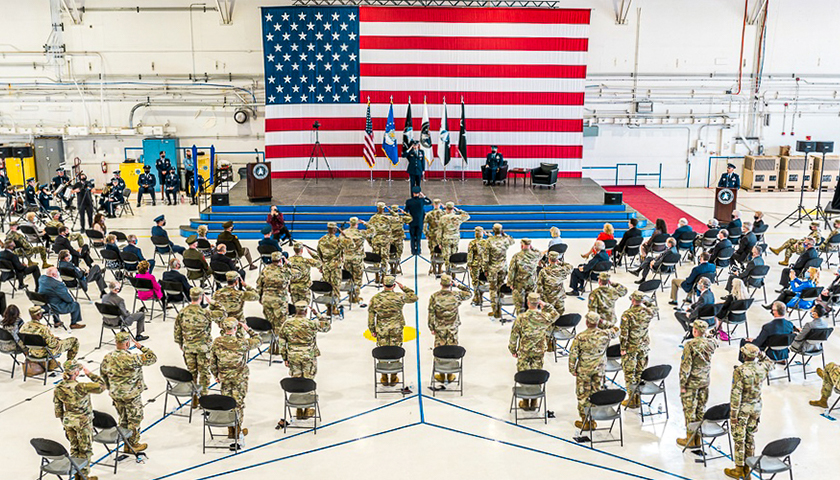by Ryan Faith
This August, thousands of space professionals from across government, industry, and academia will descend on Colorado Springs for the space industry’s big annual conference: the 36th Space Symposium. Colorado Springs has played host to the symposium since its launch in 1985. The Symposium is held there (and its sponsoring organization, the Space Foundation, is headquartered there) because Colorado Springs is a center of gravity for space activity in government and industry. All of which makes the early 2021 decision of the previous administration to move the headquarters of U.S. Space Command from Colorado to Alabama a bit puzzling.
What changes this development from puzzling to ironic is that Montgomery, Alabama, is the home of the U.S. Air Force Command and Staff College. This is where generations of Air Force officers have learned about the importance of “air-mindedness,” the pre-World War II evolution of the Air Corps Tactical School, the culture of strategic bombing versus that of close-air support, and so many other important lessons. One critical lesson has been about the formation and development of strategic and organizational culture.
U.S. Air Force Space Command, predecessor to the U.S. Space Command, was established in 1982 and headquartered in Colorado Springs. For decades, U.S. Air Force Space Command acted, effectively, as the de facto equivalent of today’s Space Force, providing the bulk of forces to the 11th combatant command. Thus, it is no coincidence that half of the Space Force’s major installations have found their homes not too far from Colorado Springs. The fact that these units are neighbors reflects the real emergence of a cultural and organizational heart for the U.S. national security space mission.
Moving an organization with decades of history to the other side of the country would seem an unusual move at the best of times. Now, given the implications of carving up, scrambling, and transplanting people and communities, especially as the culture of the newly established Space Force is emerging, moving its primary combatant command headquarters away from Colorado seems to be contrary to getting this new military service standing on its own two feet.
There may be a host of legitimate process reasons that this decision is under review by the U.S. Government Accountability Office and the Department of Defense’s Inspector General. There are reasonable questions about whether moving a combatant command this way amounts to an end-run around the well-established and Congressionally authorized Base Realignment and Closure (BRAC) process. But even if these investigations reveal significant problems, it might be smarter and wiser to reflect on them less as full-throated indictments, but rather, as an opportunity for a do-over. It is a chance to do it all over, recognizing the importance of respecting the BRAC process and avoiding the pitfalls of creating inadvertent precedents for skirting Congressional authority. An opportunity to revisit the decision considering what will be best for the fledgling Space Force and the challenge of carefully nurturing and developing its organizational culture, personal networks, and human capital.
Alabama in general, particularly Huntsville (America’s Rocket City), has had a long and proud engagement with America’s efforts in space, going back to Wernher von Braun’s arrival in 1950. But Huntsville’s unquestioned strengths as a technical center of excellence, especially for propulsion, should not be carelessly conflated with having a history as an operational national security space enterprise. The history, people, and culture of our operational national security space community all live in Colorado. It would be foolhardy to jettison decades of history and relationships into tiny little pieces, especially when our Space Force is just beginning to spread its wings.
– – –
Ryan Faith is a space policy consultant who previously served as a professional staff member supporting the House Subcommittee on Space and Aeronautics. Prior to that, Faith was VICE Media’s Defense and Security editor and a research analyst for the Space Foundation. He is a contributor to RealClearDefense.








